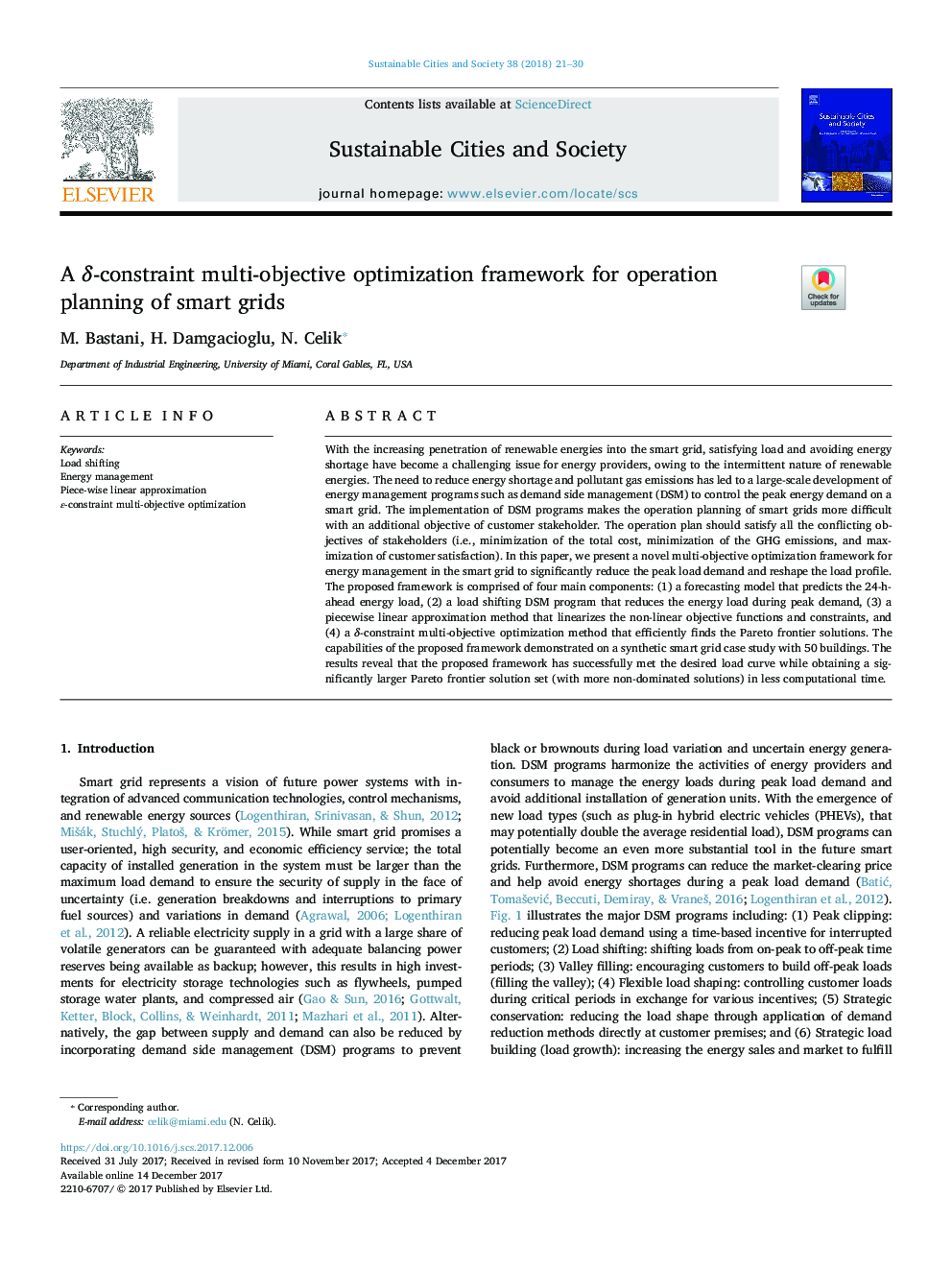| Article ID | Journal | Published Year | Pages | File Type |
|---|---|---|---|---|
| 6775250 | Sustainable Cities and Society | 2018 | 10 Pages |
Abstract
With the increasing penetration of renewable energies into the smart grid, satisfying load and avoiding energy shortage have become a challenging issue for energy providers, owing to the intermittent nature of renewable energies. The need to reduce energy shortage and pollutant gas emissions has led to a large-scale development of energy management programs such as demand side management (DSM) to control the peak energy demand on a smart grid. The implementation of DSM programs makes the operation planning of smart grids more difficult with an additional objective of customer stakeholder. The operation plan should satisfy all the conflicting objectives of stakeholders (i.e., minimization of the total cost, minimization of the GHG emissions, and maximization of customer satisfaction). In this paper, we present a novel multi-objective optimization framework for energy management in the smart grid to significantly reduce the peak load demand and reshape the load profile. The proposed framework is comprised of four main components: (1) a forecasting model that predicts the 24-h-ahead energy load, (2) a load shifting DSM program that reduces the energy load during peak demand, (3) a piecewise linear approximation method that linearizes the non-linear objective functions and constraints, and (4) a δ-constraint multi-objective optimization method that efficiently finds the Pareto frontier solutions. The capabilities of the proposed framework demonstrated on a synthetic smart grid case study with 50 buildings. The results reveal that the proposed framework has successfully met the desired load curve while obtaining a significantly larger Pareto frontier solution set (with more non-dominated solutions) in less computational time.
Related Topics
Physical Sciences and Engineering
Energy
Renewable Energy, Sustainability and the Environment
Authors
M. Bastani, H. Damgacioglu, N. Celik,
